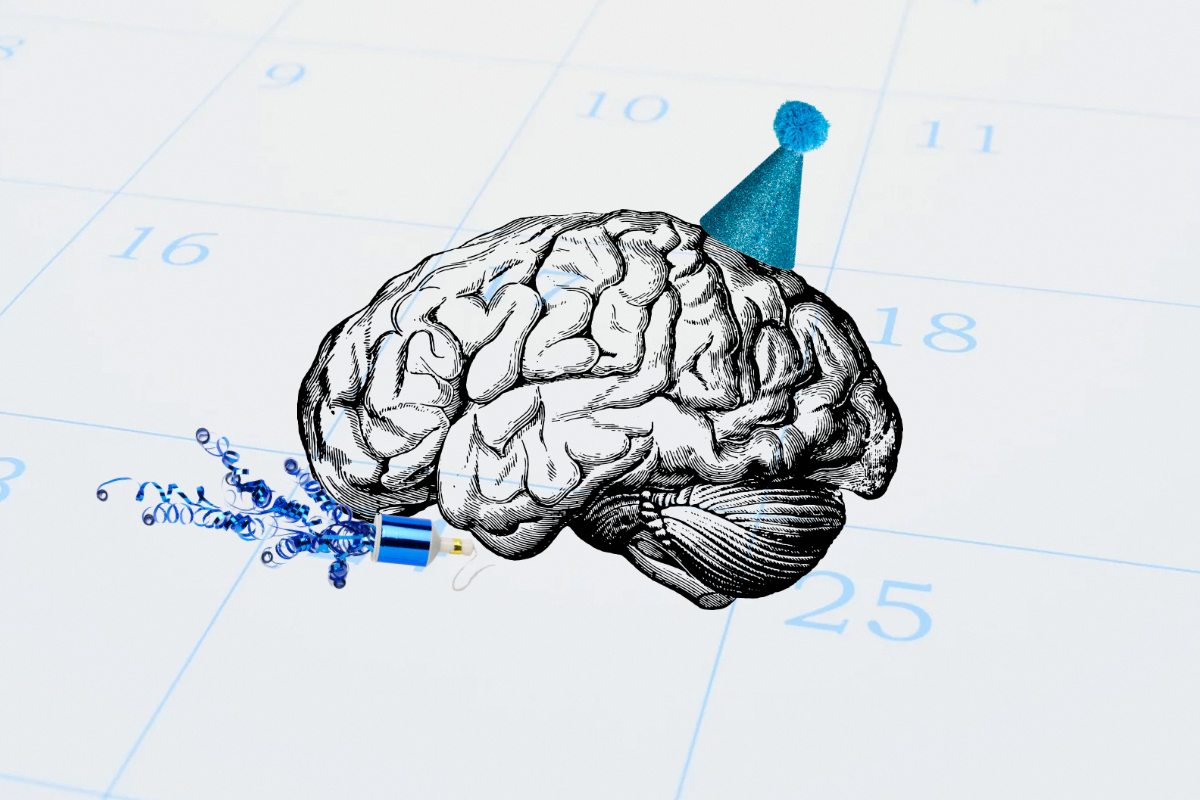Hack Your New Year's Resolutions
Make 2025 your year with these insights from psychology and neuroscience on how to make better New Year's resolutions.

What are your New Year's resolutions? In 2024, YouGov reported that 61% of Singapore residents wanted to improve their physical health, while 53% included managing money better on their resolution list. Whether it's finally hitting the gym or curbing spending on bubble tea, psychology and behavioural science can help you get a science-backed start to 2025.
The Fresh Start Effect
You've probably heard the phrase "new year, new you." Behavioral scientists call this drive to achieve personal growth following temporal landmarks the fresh start effect. This effect, described by behavioral scientists Hengchen Dai, Katherine Milkman, and Jason Riis, is the tendency for people to feel extra motivation following key dates like a birthday or new year to chase their dreams. Since the special occasion indicates a “psychological reset,” people feel like they can begin with a clean slate.
While the New Year is perhaps the biggest example of this, you can take advantage of the "fresh start effect" anytime. Technically, what we benchmark as New Year's Day in the Western world (January 1 in the Gregorian calendar), isn't a universal rule for the start of the year. Several Asian traditions celebrate the new year based on different calendars; for example, Chinese New Year occurs on the second new moon following the winter solstice, while Deepavali takes place on amavasya (new moon) usually between mid-October to mid-November based on the Hindu lunisolar calendar. There are opportunities for fresh starts anywhere you look, even with something as simple as a new week if you treat it like a new beginning.
Smarter Goal Setting
To milk the benefits of that psychological boost around a fresh start, introspect and identify what exactly you want to achieve. Beginning in the 1960s, psychologists Edwin Locke and Gary Latham began researching goal-setting in corporate environments. Their research trickled down to the formation of consultant George Doran's highly popular S.M.A.R.T. goal acronym (Specific, Measurable, Achievable, Relevant, and Time-Bound). In recent years, though, some experts have recommended setting more open-ended goals, especially if you're just picking up a new skill, since identifying a suitably challenging goal requires some experience. Open goals, such as just walking more versus walking 5 km every day, might be more encouraging and exploratory for beginners.
If you do have some experience in the area where you want to improve, though, the power of setting a numerical target shouldn't be overlooked. One example is how many marathon runners set a goal of running a marathon in less than four hours. A study published in Management Sciencegathered data from 10 million marathon runners and found that a lot more runners "finish in three hours and 59 minutes rather than four hours and one minute," suggesting that setting such targets can help drive better performance.
Reframing a negative habit you want to kick as a positive habit you want to foster may also lead to success. For instance, you could reframe "stop being sedentary" as "take a 15-minute stroll after dinner each day." A 2020 study found that people who framed their New Year's resolutions as approach-oriented goals (introducing positive behaviours) were significantly more successful than those who framed their resolutions as avoidance-oriented goals, with 58.9% of approach-oriented participants achieving their goal compared to 47.1% of the avoidance-oriented participants.
Be Kind to Yourself
And if you're already struggling with your New Year's resolutions, don't despair. You're not alone. Shockingly, research reveals that as many as 80% of people give up on their resolutions by February. Some common reasons resolutions fail are that they are either ill-defined or too vague, depend on all-or-nothing approaches, lack structural support, and are results of external pressure rather than intrinsically motivated.
Psychologists recommend focusing on the big picture of gradual improvement and adopting a self-compassionate attitude instead of immediately berating yourself for experiencing a setback with your goal.
Adapting after bingeing potato chips could mean going back and setting up a smaller, more reasonably challenging goal for yourself (e.g. chomp on baked nuts instead of junk food during late night cravings), or realizing that you need to set up your environment in a different way to foster success (e.g. grocery shopping when you’re not hungry and preparing healthier pantry options in advance). As psychotherapist Amy Morin writes in her blog post for Psychology Today, "hugely successful people approach failure as feedback, not the end."
Have Fun!
This iterative process of self-discovery can even be fun. People are turning to more creative and playful alternatives to the traditional New Year's resolution list in recent years, for example, crafting vision boards, poster collages of pictures representing one's aspirations. Neurologist Dr. Leah Croll reports looking at these vision boards encourages visualization, which can help train your brain since “visualizing a desired outcome can activate the same neural pathways as actually experiencing it.”
Another joyful take on the New Year's resolution is the recent TikTok trend of creating bingo cards. You fill in bingo card squares with small goals you want to achieve over the year, and “play” with your friends and family to see who can cross off all their squares first. This practice can help overcome the all-or-nothing thinking that often dooms New Year's resolutions, while introducing social accountability, flexibility, and fun so achieving that goal doesn't seem like a daunting checklist anymore.
As for myself, this is my third year in a row where getting enough sleep is on my New Year's resolutions list (you can read my 2024 New Year's experiment with gamifying sleep here). However, as opposed to feeling disheartened when I inevitably end up watching an entire Netflix series in one night, I'll change things up this year by being more curious and setting myself up for smaller but more doable sleep wins. Here's to making 2025 your year!
Written by Jamie Uy
Featured image created in Canva
Last updated 20 January 2025

